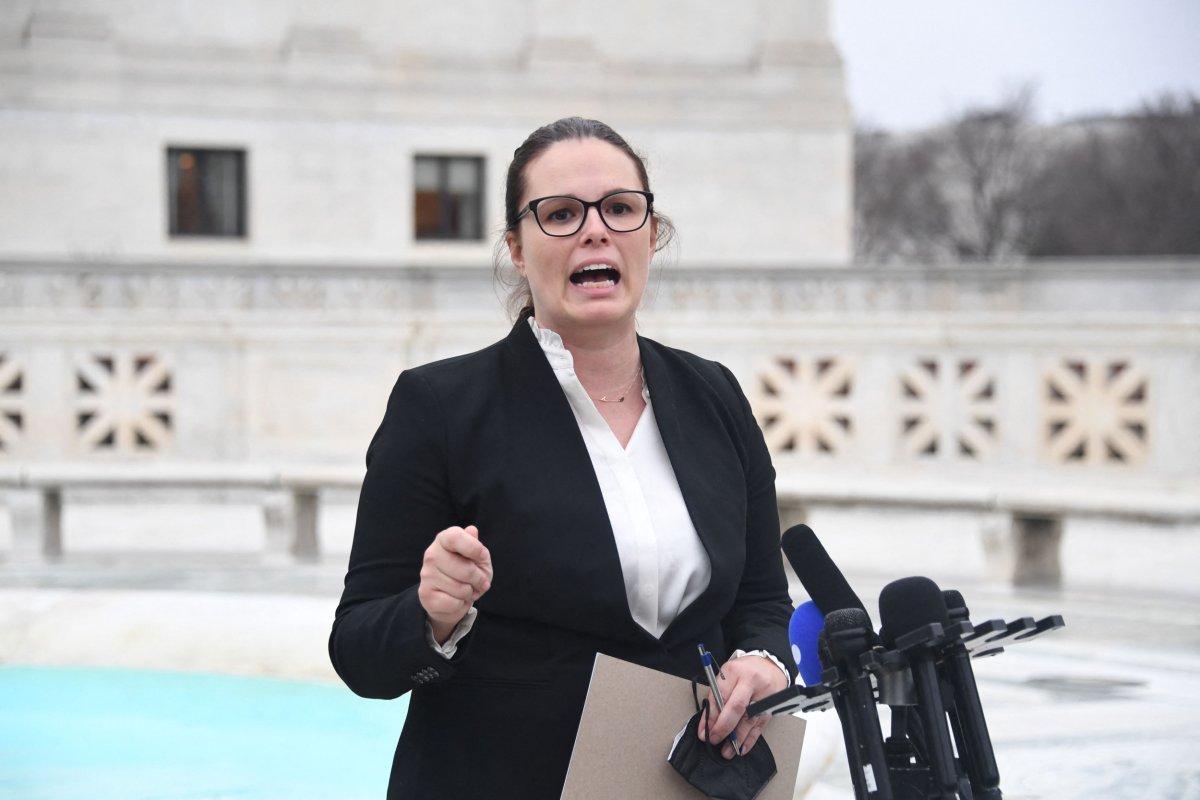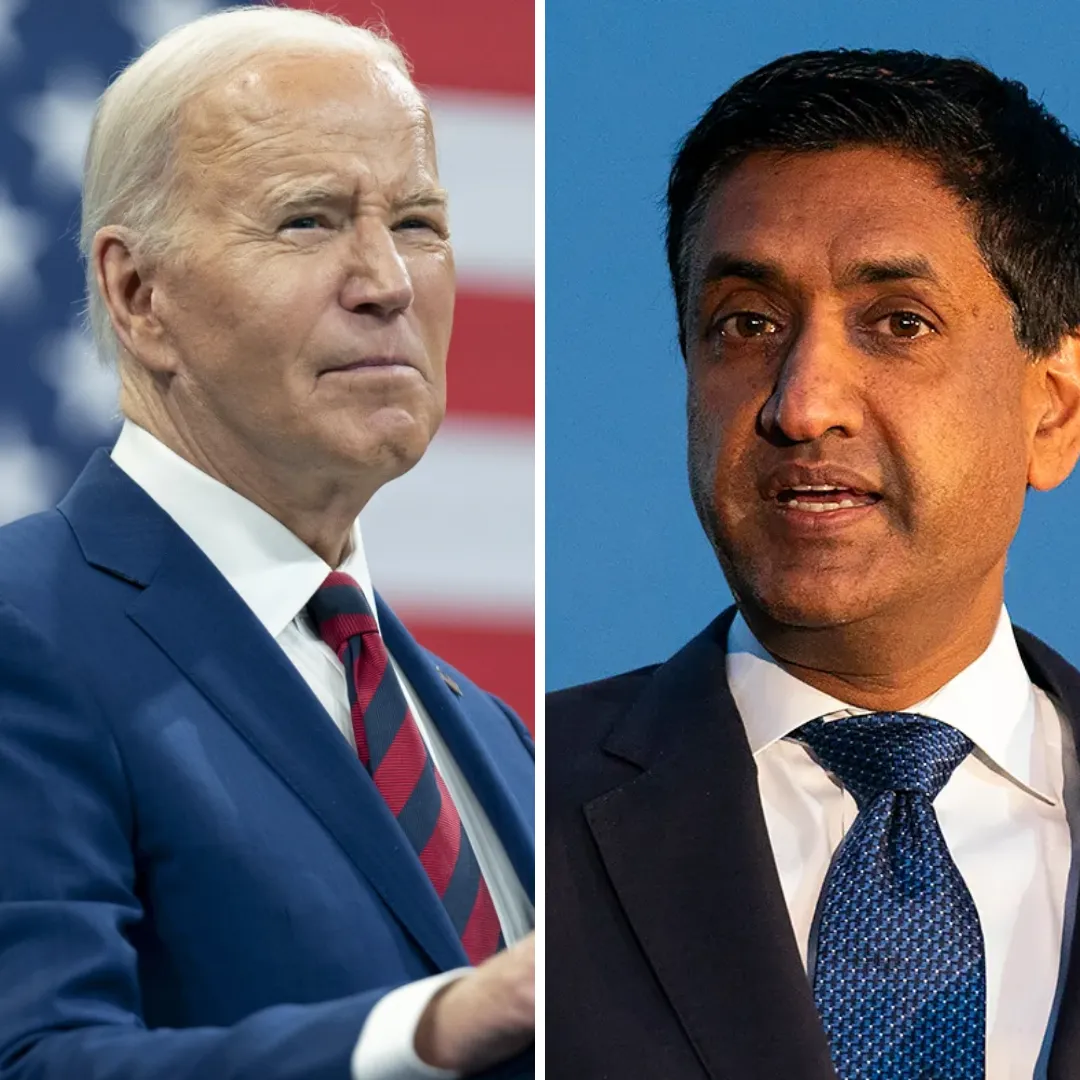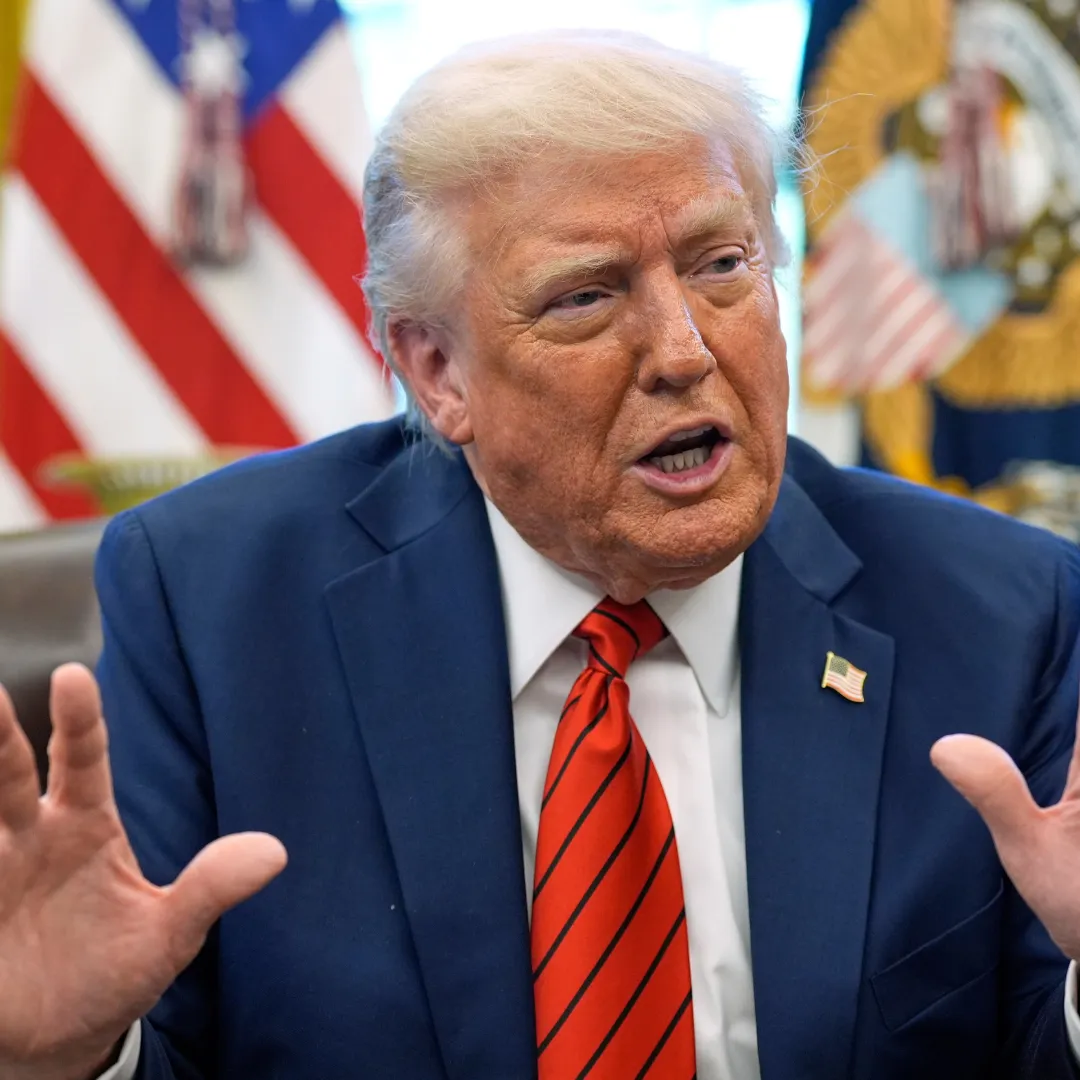
In a landmark decision that could finally resolve nearly six months of legal chaos surrounding North Carolina’s contested Supreme Court race, a federal judge ruled Monday that the state must certify Democrat Allison Riggs as the winner and blocked a Trump-aligned Republican’s effort to overturn the result by discarding thousands of ballots.
Chief U.S. District Judge Richard E. Myers, appointed by President Donald Trump, issued a 68-page ruling rejecting Republican candidate Jefferson Griffin’s challenge, ordering the state to finalize the results of the election as originally reported after the canvass period, with Riggs ahead by 734 votes.
Myers wrote that Griffin could not “change the rules of the game after it had been played,” delivering a major blow to GOP efforts that aimed to discard ballots after the election ended.
Riggs, currently serving on the state’s highest court, had been fighting to stop the state from throwing out ballots based on residency disputes and delayed identification requirements. After the ruling, Riggs said in a public statement, “Today, we won. I’m proud to continue upholding the Constitution and the rule of law as North Carolina’s Supreme Court Justice.”
Despite the order, Myers placed a seven-day hold on his decision to give Griffin time to appeal, signaling that while the ruling is definitive, the legal battle may not yet be over.
Griffin and the North Carolina Republican Party, which joined him in the lawsuit, did not issue a formal statement Monday night but indicated they are reviewing the decision and evaluating next steps.
In his opinion, Myers said Griffin’s effort to toss more than 65,000 votes represented an unconstitutional burden on the right to vote, calling the effort both selective and retroactive.
He wrote, “This case concerns whether the federal Constitution permits a state to alter the rules of an election after the fact and apply those changes retroactively to only a select group of voters, and in so doing treat those voters differently than other similarly situated individuals. This case is also about whether a state may redefine its class of eligible voters but offer no process to those who may have been misclassified as ineligible. To this court, the answer to each of those questions is ‘no.’”
The ruling halts the state Supreme Court’s earlier directive requiring a “cure period” where thousands of voters, primarily military and overseas voters, would have had to verify their eligibility or risk having their ballots discarded.
Myers concluded that this cure period would violate federal equal protection standards and disenfranchise lawful voters. The prolonged legal standoff has drawn national attention, with critics warning that if Griffin’s strategy had succeeded, it could provide a blueprint for future challenges to legitimate election results across the country.
The saga began when Griffin, a judge on the state Court of Appeals and a known Trump supporter, challenged the legitimacy of tens of thousands of ballots following his narrow loss in November.
Initially, Griffin sought to disqualify over 65,000 ballots based on missing identification data and other technical issues. However, most of his claims were thrown out by the North Carolina Supreme Court last month in a ruling that concluded more than 60,000 of the disputed votes could not be blamed on voter error and should not be rejected.
Despite that ruling, the court did allow a limited cure period for military and overseas voters, ordering that they would need to verify their identities within 30 days or risk losing their votes.
Griffin’s challenge quickly came under fire for targeting only six counties out of the state’s 100, all of which lean Democratic. Judge Myers referenced this selective targeting in his decision, writing, “When the underlying basis for a protest is a rule that applies statewide, a geographically selective protest raises equal protection concerns and the specter of post-election mischief.”

The judge noted that North Carolina had approved an ID exemption for military and overseas voters well in advance of the election and that the rule was never legally challenged before votes were cast. He determined that applying new verification requirements only after the election, and only in select locations, was inherently unfair and constitutionally suspect.
Griffin’s legal team also pushed to disqualify ballots from voters whose residency status had been questioned. Reporting by independent outlets had previously found that many of these individuals, whom Griffin’s allies accused of never living in North Carolina, were in fact long-term residents.
The court found that these challenges carried a serious risk of disenfranchising valid voters without due process and ruled that none of these ballots should be thrown out. Myers’ decision blocks the implementation of the cure period entirely, directing the state to count all existing ballots and certify the results without further review.
Griffin had attempted to escalate his challenge by arguing in both state and federal court that more ballots needed to be reviewed and that the state’s plan for verifying disputed ballots was insufficient.
After the Republican Party gained control of the State Board of Elections last week for the first time in nearly a decade, some observers worried that the board might alter the verification process to favor Griffin.
However, Myers’ ruling now bars any such changes and locks in the result, at least temporarily, pending a potential appeal to the 4th Circuit Court of Appeals, which has already rejected Griffin’s arguments once.
The political implications of the case are significant. With growing concern nationwide about efforts to challenge election results post hoc, the court’s decision is being hailed by voting rights advocates as a crucial defense of democratic integrity.
They argue that had the court sided with Griffin, it could have opened the door to future candidates rejecting unfavorable outcomes by targeting groups of voters for disqualification.
The decision also provides some stability to North Carolina’s judiciary, ensuring that Riggs can remain on the bench and perform her duties without uncertainty hanging over her position.

The legal proceedings have also exposed deep divisions within North Carolina’s political and legal system, with the Republican-controlled Supreme Court and GOP leadership backing Griffin’s effort, while federal courts and Democratic officials pushed to uphold the election results.
The standoff has drawn attention from national media and civil rights organizations, many of whom expressed alarm at the idea of changing election rules retroactively.
The fact that the dispute has persisted for nearly six months after the election ended reflects the growing normalization of election challenges in a political climate shaped by conspiracy theories and partisan warfare.
The Griffin case, while ultimately unsuccessful for now, is part of a broader trend that many democracy advocates fear will become more common. The attempt to overturn a certified election result through aggressive litigation mirrors patterns seen in other states and in national contests.
Trump’s continued rhetoric around election integrity and his influence on down-ballot races has encouraged a wave of similar efforts, often focused on procedural technicalities and aimed at invalidating votes in Democratic strongholds. Griffin’s alignment with this strategy is evident in the structure of his challenges and the language used in his court filings.
As the legal dust begins to settle, Riggs can finally claim a clean and certified victory. The ruling affirms her election win and reestablishes confidence in the democratic process in North Carolina, at least for now. If Griffin chooses to appeal again, the battle could stretch on, possibly reaching the U.S. Supreme Court.
But Myers’ decision delivers a clear message that elections must be governed by the rules in place at the time of voting and that attempts to rewrite those rules after the fact will not be tolerated in federal court. The outcome may also encourage lawmakers to strengthen protections around ballot access and electoral procedure to prevent similar disruptions in the future.




